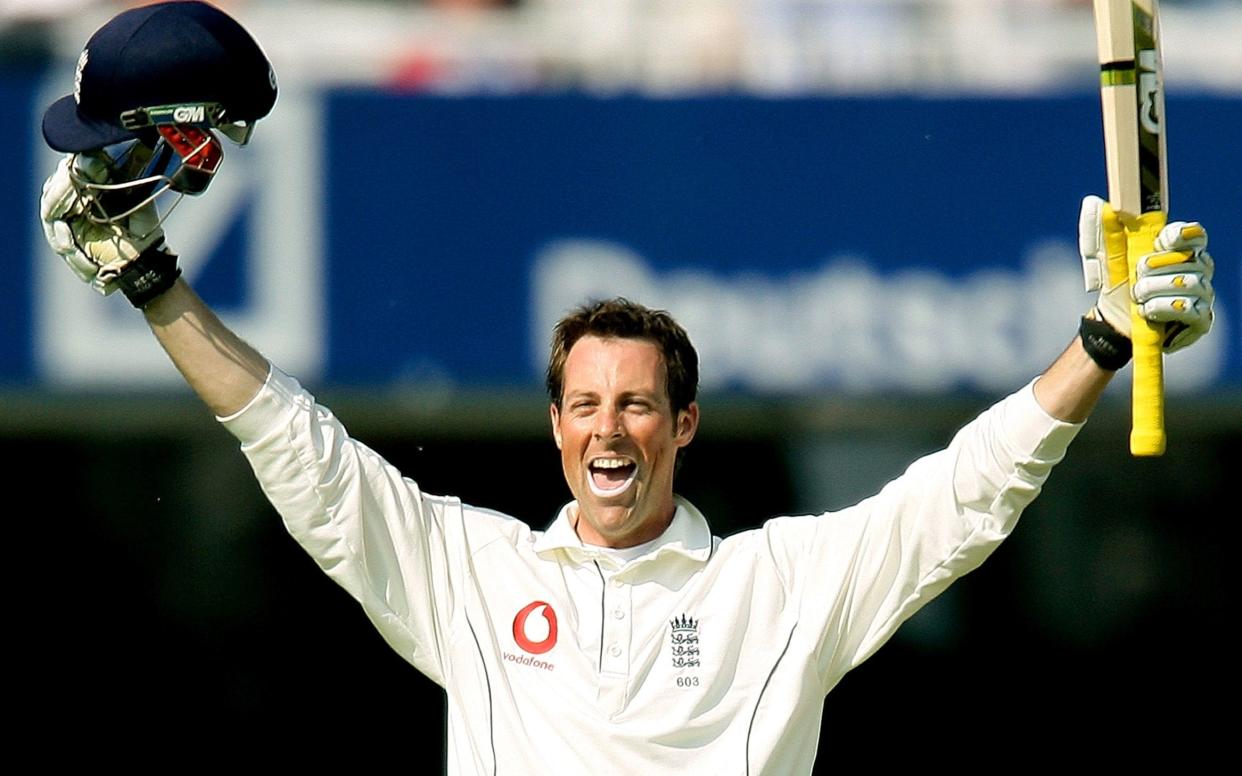Marcus Trescothick reveals how England teammates would provide ‘on-field therapy’

Former England batsman Marcus Trescothick has revealed how before his international career was ended by mental health issues he would hold “therapy” sessions at the wicket with a teammate to discuss their troubles.
Now a coach for the England cricket team, Trescothick retired from the international game because he didn’t want to be too far from his family due to his anxiety attacks.
He said the other player suffered from similar issues and they would discuss their problems while both playing brilliant innings.
Speaking to former England rugby star Jonny Wilkinson on the I Am podcast, Trescothick told how even while playing well he could be on the verge of breaking down in tears.
Trescothick said: “It’s almost to that point where it’s irrelevant what’s going on out in the field.
“Walking out onto the field does make it worse because you know there’s that element of pressure that you’ve got to perform, but this is on a different level of anxiety and emotion and just fear of generally what’s going on in my life at the moment.
“For me I wasn’t that worried about the performance. I wanted to perform mainly because I knew if I had to walk off and sit down in the changing room I was going to be in pieces.
“So I wanted to stay out on the field and determined to focus my brain on trying to bat because I knew the minute I walked off I’m done.”
Trescothick returned home in the middle of England’s 2006 tour of India citing personal reasons. He came back for home internationals that summer, but in September that year he withdrew from the remaining one-day games against Pakistan because of a stress-related illness.
Although he said he did feel pressure from high expectations to do well while playing, he said his problems were primarily not cricket related.

Looking back on how mental issues that affected his career, he said: “The first time it happened and I left the field, and I left India when I was playing a warm-up game for England. I was in pieces out there batting – you know felt physically sick, that anxiety, and I’m trying to just battle through it to bat and get runs because I knew literally the minute I got out I’m then crying as I’m walking off the field, walking to the changing room, and then I’d gone. Completely broke.
“That was the beginning of the end of my international career.
“There was one really great one where I got a hundred, but I felt so bad.
“And there was someone else in the team that I talked to, he’d suffered the same sort of thing.
“And we were both out in the middle and we’d play out the over, run, score, whatever it may be. Meet in the middle, go ‘God, yeah, I feel so bad, didn’t sleep last night’.”
Asked if they were giving each other on-field therapy, Trescothick, 48, replied: “Absolutely, because we’d built up that relationship to be able to talk about it. It’s like ‘Can’t sleep’, he’d go ‘What’s going on?’
“I said ‘Well, I don’t know, I’m feeling like this’. ‘Good luck, keep going’.
“Carried on batting, it’s like bang, bang, bang, meet in the middle. And we both got hundreds and it was like ‘This is surreal’, because we’re not thinking about cricket for very much, we’re just talking and helping each other through, just debating and understanding what we’re both feeling.
“You can do amazing things. The brain can do amazing things and it causes so much trouble at the same time.”
Following his departure from the India tour, Trescothick returned to the international arena, and was included in the squad for the 2006-7 Ashes tour in Australia, and played in the first two tour matches.
But following the match against New South Wales, England announced he was flying home due to a “recurrence of a stress-related illness”.
He announced his retirement from international cricket on 22 March 2008.
In his autobiography later that year, called Coming Back to Me, he explained he had suffered anxiety attacks since the age of 10, and he found it easier playing domestic cricket because of the security of knowing he was only ever three hours away from his family.


